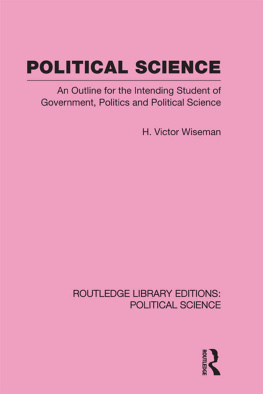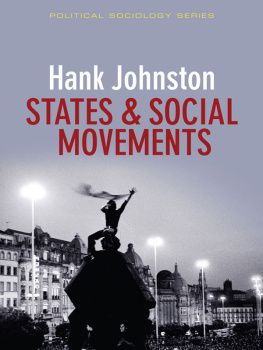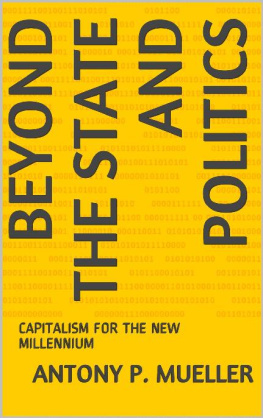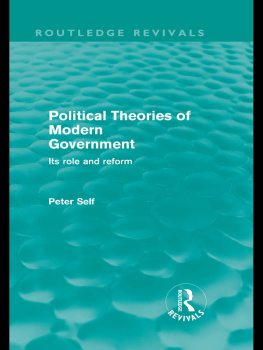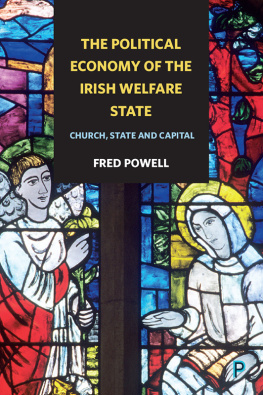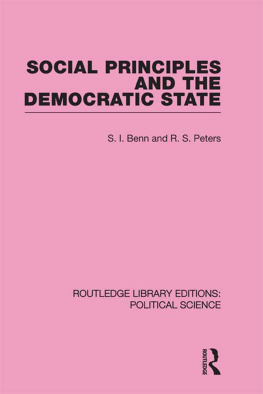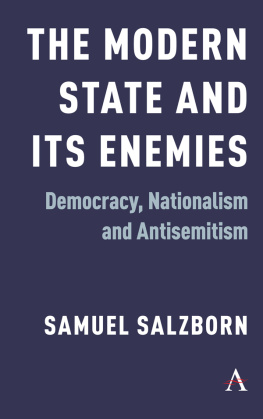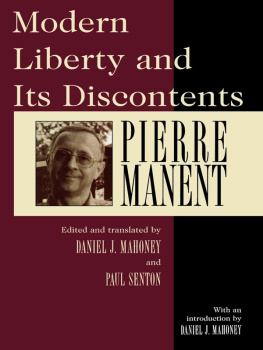ROUTLEDGE LIBRARY EDITIONS:
POLITICAL SCIENCE
POLITICAL SCIENCE
POLITICAL SCIENCE
An Outline for the Intending Student of
Government, Politics and Political Science
By
H. VICTOR WISEMAN
Volume 14
First published 1967
This edition first published in 2010
by Routledge
2 Park Square, Milton Park, Abingdon, Oxon, OX14 4RN
Simultaneously published in the USA and Canada
by Routledge
270 Madison Avenue, New York, NY 10016
Routledge is an imprint of the Taylor & Francis Group, an informa business
1967 Routledge & Kegan Paul Ltd
All rights reserved. No part of this book may be reprinted or
reproduced or utilised in any form or by any electronic, mechanical,
or other means, now known or hereafter invented, including
photocopying and recording, or in any information storage or
retrieval system, without permission in writing from the
publishers.
British Library Cataloguing in Publication Data
A catalogue record for this book is available from the British Library
ISBN 10: 0-415-49111-8 (Set)
ISBN 13: 978-0-415-49111-2 (Set)
ISBN 10: 0-415-55545-0 (Volume 14)
ISBN 13: 978-0-415-55545-6 (Volume 14)
Publishers Note
The publisher has gone to great lengths to ensure the quality of
this reprint but points out that some imperfections in the original
copies may be apparent.
Disclaimer
The publisher has made every effort to trace copyright holders and
would welcome correspondence from those they have been unable
to trace.
POLITICAL SCIENCE
An Outline for the Intending Student
of Government,
Politics and Political Science
Edited by
Professor H. Victor Wiseman
Head of the Department of Government
University of Exeter
LONDON
ROUTLEDGE AND KEGAN PAUL
First published 1967
by Routledge & Kegan Paul Limited
Broadway House, 6874 Carter Lane
London, E.C.4
Printed in Great Britain
by Richard Clay (The Chaucer Press) Ltd
Bungay, Suffolk
Routledge & Kegan Paul Ltd 1967
No part of this book may be reproduced
in any form without permission from
the publisher, except for the quotation
of brief passages in criticism
CONTENTS
PREFACE
THIS VOLUME IS THE FIRST TO DESCRIBE A PARTICULAR SOCIAL science following upon The Social Sciences edited by Professor D. C. Marsh, which dealt generally with the whole field. It is concerned with Political Science, sometimes described as Political Studies, Politics or Government; students should note that the differences between the variously named university departments are insignificant. Sixth formers deciding what to read when they go to university are tempted to choose subjects with which they are already familiar. It is hoped that this preview of political studies may help to guide some of them into what the authors naturally regard as one of the most absorbing of university disciplines. The volume may also be of use in current affairs or liberal arts courses in schools and colleges.
The various chapters set out clearly the many branches of the subject. It remains to add only that we have not included a separate chapter on international politics, partly because this is taught in few universities as part of an ordinary politics course, partly because in many universities where it is taught it is organised as a separate subject or even in a separate department and may be closely related either to international relations or international law, or both.
I am indebted to my colleagues at Exeter University for the skill and speed with which they have completed their contributions.
H. VICTOR WISEMAN
1
Introduction:
Government, Politics and
Political Science
H. Victor Wiseman
IN RECENT YEARS THERE HAS BEEN A STARTLING PROLIFERATION of departments of politics, government, political studies and political science (all of which, the student is advised, are virtually synonymous) and of political studies (whether called civics, citizenship courses, liberal studies or social studies) in colleges and schools. The purpose of this volume is to attempt to justify these developments and to assist prospective students to understand what is involved in such studies and what opportunities they provide for both intellectual and vocational advancement.
The never-ending din of politics, to use Lord Balfours phrase, assails the public ear with increasing intensity, enhanced now by the visual aid of television. Consider the issues which within a short period call for debate and decision. The British government may have to consider the implications of a possible strike for the national economy and its prices and incomes policy; news of a worsened balance of payments situation and its relevance to a forthcoming budget; defence policy and the choice between aircraft carriers and long-distance aircraft; events in Vietnam, Malaysia, Rhodesia, Nigeria, Aden, Ugandafrom China to Peru, in fact. Parliament may debate development plans and incentives to investment, the law relating to abortion or homosexuality, the social services and foreign policy. Regional Councils may be striving to cope with the immediate problems of pit or railway closures and, simultaneously, with long-term plans for their region. Local authorities may be considering rate increases and restrictions on capital development and the threat of a royal commission. Trade unions may be discussing wages and overtime, professional associations the national health service or comprehensive schools, student bodies the size of grants or university discipline, churches a fixed Easter, groups of citizens noise at London Airport, a threat to National Parks, the restoration of the cat or of capital punishment, the future of the Territorial Army, the problem of foster-parents and care of children, and a multitude of other problems. The prime minister may have to take time off to consider a possible general election in the midst of objective or partisan advice from politicians, newspapers, television commentators, even from international financiers, the gnomes of Zurich. All this, directly or indirectly, is political activity. It is concerned to persuade, influence and convince the authoritative decision-makers in the political system.
How may this din affect various groups in the community? A large number of citizens may remain relatively unaffected. They will be more interested in their favourite football team or this weeks pools, in the Test Match series or the racing results, in the Top Ten or Double Your Money, in the problems of Ena Sharpies or Nurse Beattie; or, of course, in symphony concerts or art exhibitions, Lunar II or cancer research. Nor are such people necessarily entirely uninterested in politics. They may be intermittently concerned when their own special interests are affected. There are latent groups or apparently unconcerned individuals who, in certain circumstances, may be aroused. Many remain unmoved by political events because nothing normally affects their political loyalties; family, tradition, class, education and other factors may ensure that for most of their lives they are either little Liberals or little Conservativesor Labour supporters. Theirs is not indifference but commitment to politics.

